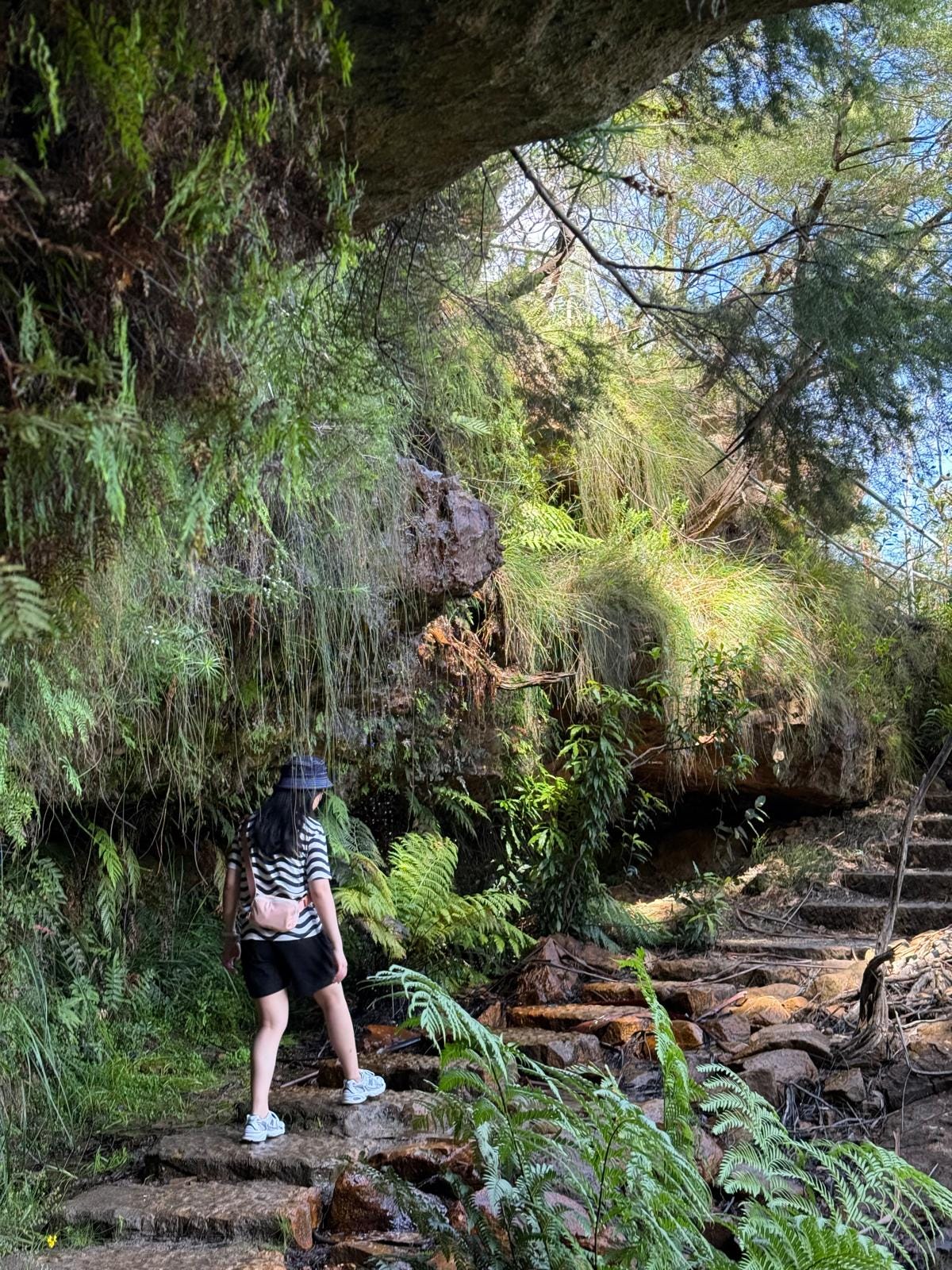Hola.
Sav here.
Happy birthday month to me!
In my head, my birthday, the 15th of June, is the middle of the year.
This is entirely untrue. The middle of the year of the 183rd day of the year is the 2nd of July, but that’s not as cool of date as twelve months divided by two is six (June) and thirty days divided by two is fifteen (me!).
While it is a self-projected yearly midpoint, it is the coming of another lap around the sun for me and alas I associate 15 June with a ton of reflection and introspection. Around it, though typically not on the day itself, I have a serious study and realignment session how life had been treating me / how I had been treating life for the last six months. It’s a good spot to congratulate myself for excellent things achieved, forgive myself for challenges not conquered, and course-correct myself for the remainder of the year.

I’m turning 25 this year. A milestone birthday that transitions from early-twenties to late-twenties where in a flash I’m somehow expected to know everything I want, settle into a career and industry, have a partner destined for the end of time and tie all my income into a singular property asset.
Well, that’s the story that has been instructed to me — the template of what a good life looks like.
However, if I pulled out all external influence and expectation, is that the trajectory I would outline for myself? Would I come to a similar, steady conclusion or would I opt for the wilder, unconventional, road less taken?
My quarter life crisis is brewing like a storm and I’m in the market for a bit of internal archeology.
Throughout June, in addition to a mini-series to reestablish what this newsletter means to me; I’ll be sketching out my very own 25 lessons by 25.
There will be no rhyme, reason, pattern nor order in which these lessons appear. In fact, as I’m writing this, I’ve only got about 12 lessons listed out because I don’t keep a running list of them — however, as I draft and edit and create these entries, I expect new revelations/creations to flare into memory.
That’s the magic of writing after all; it creates clarity, polishing concepts into gold.
And through this mini-series, I hope to make the constellations in my head more tangible.
(This series is inspired by Chloe Shih’s 30 lessons by 30 series. I had discovered Chloe through the Joy of Missing Out podcast with Eric Wei and I’m counting the days to its second season.)
1. It’s better to be cringe as a teen than cringe as an adult
I wish I could pinpoint when and where exactly this piece of advice popped into my head.
It was somewhere in my teenage years and it had lingered ever since.
The closest thing I have to it was this bass-boosted meme from the finale of Wreck-It Ralph and proclaims that against all odds, even if he was a bad guy, he would rather be true to himself instead of anybody else.
This lesson has two complementary chords.
It is acceptance that I was pretty cringeworthy in my teenage years, but that’s more than okay, because it was the perfect chance to make mistakes and explore myself at an age where it was more forgiven. If you look back at your old self and cringe, that just means you’ve grown.
At the same time, it’s a note that even though I’m an adult in my mid-twenties, I’m still a child in comparison to my mid-thirties self, and a bawling baby in the eyes of my mid-forties self. I still have room to make mistakes, to take risks, to engage in tomfoolery, to build an account like this one.
Greatness often lies over the crevice of cringe and I’ve still got plenty of headway to leap across.
2. Data does not tell you what to do
I’m a numbers guy by trade and words guy by heart.
This piece of advice was given by one of the most numbers guys I know — which I shared in my post about four lessons from my first job.
No amount of spreadsheets, analytics, big data, or technical documentation will tell you what to do or what the right answer is.
All it does is support or counter your argument.
It is to shape your belief, not make it, which is why science experiments require you to have a hypothesis (the assumption you are trying to prove or disprove) before even doing anything. Know that statistics is the biggest liar on the planet and always validate your data points through the ultimate weapon of common sense, before treating them as law.
This advice is affirmation that it is not the data, but the human, who is in the driver’s seat. He controls the data. He controls what it looks like and how it’s presented. The truth is often a hazy one and it’s never about what the data says, it’s about what you make of it.
And to add to that, nothing makes up for taking a look at the real world; from the macroeconomic cases like how financial trader Gary Stevenson predicted the aftermath of the 2008 crisis by interviewing the people around him, to little ones like the weather forecast saying it’s going to be 22 and sunny but there’s a massive storm cloud brewing right at your window.
The ability to reason and think for ourselves is core of being human.
(So uh, I’m a little afraid of the future when AI does it for us.)
3. If you don’t pay by money, you pay by something else
I didn’t grow up low income, but I definitely grew up in a household where money was not discussed at the dinner table, reserved for untouchable safe rooms.
I didn’t grow up a big spender. Half my clothes growing up were hand-me-downs from uncles and aunties, a few pieces of furniture in my home were literally picked up from the recycling bin, and even today I would still go out of my way to drive to the lowest cost petrol station to save 2.3 cents per litre (that shit adds up!).
Fun fact: I have a major habit of leaving half-used towels on the kitchen bench whenever I only use it for small spills, citing that I could the other three corners for other small spills. This is something my mom had always done — so much so that I thought paper towels were expensive growing up.
These penny-pinching habits have served me well, but there does come a time where it becomes more effort than it’s worth, where it points me down a path of pound-foolishness.
As time goes on and, let’s be honest, a bit of lifestyle inflation kicks in — I realise that everything in this world has a coat: whatever I do not pay with money, I pay with something else.
Whenever I head to the grocery store and cook my own meal, I’m saving money, and spending through my time, effort, mental bandwidth and accumulated cooking skills.
If I were to pick cheaper but unhealthier ingredients, I would also be paying through my physical health.
To tack onto that, if I were to pick cheaper and healthier ingredients but the ones that I don’t actually enjoy very much, then I would be paying via my happiness and satisfaction.
Whenever I choose to spend an extra thirty minutes in the office to finish off the project that’s been stressing me out, I’m paying for tomorrow’s freedom with today’s struggle (only to get more work tomorrow because it’s a Microsoft Outlook is a deadly treadmill)
To take it to the extreme, if I were to commit an unsanitary crime for a heap of money or to get out of a bad situation, I’m paying with my dignity, self-control, and humanity — while putting my future at risk.
And to dial it all the way back, whenever I stand in line for a free cup of ice cream or watch a short advertisement to make use of a free product or application, I’m paying with the most commodified and underrated resource of present day.
Why do you think they call it paying attention?
4. Walking solves half of all problems
Ever since Greek mathematician and philosopher Archimedes figured out how to solve a king’s riddle by sinking into a bathtub, it’s been a running phenomenon in the human race that the greatest ideas are born out of a shower.
This unscientific but unanimous effect is called the shower effect.
It’s not exclusive to running water of course.
The shower effect is also associated with long walks, driving familiar routes, light exercise, light meditation and instrumental-only/lo-fi music.
Meditative, low-sensory, moderately boring environment. Activities that take up a mild serving of physical effort and not much else — allowing your mind to wander as aimlessly as a sailboat, blown by the whims of the wind.
While I would love to interrupt workday with multiple half-an-hour showers under hot water, this has been deemed unfeasible because 1) there is no shower in the office 2) it is exceedingly expensive for my water bill and 3) it’s pretty terrible for my skin.
Walks, however, are doable pretty much anywhere. So much so that there’s no excuse once you’re out there.
I’ve discovered that the best solution to roadblock is to physically pull yourself out of the situation and go for a walk.
Up the hill. Across the street. Towards the coffee shop.
In a circle. Around the room. Like a scheming scientist from a kid’s cartoon.
Walking is the magic antidote to clearing the mind and feeding the subconscious — and of course, it’s always great to weave in some movement into our increasingly sedentary lives.
(Highkey considering getting a standing desk and walking treadmill. I have NOT been hitting my 10k step goal lately.)
5. You don’t always need to hit a button out of the corner
You can’t get an advice column out of me without a Super Smash Bros analogy.
Almost every interaction in Smash (or fighting games overall) is a crash course in, well, game theory, and there is much we can learn from the economics of strategy and decision-making.
(This won’t be the only Smash analogy in this series — trust that I’ll always do my best to explain it in layman’s terms.)
This came from one of the more experienced players I was playing with, who noted that whenever I was in the corner (disadvantageous situation), my first instinct was to punch my way back to neutral ground as quickly as possible.
Simply put: if you’re desperate to get out of your bad situation, your decision-making becomes very, very predictable.
Instead of opting my way in with the same three options every time, his advice was to wait. Move in. Move out. Be more strategic on the timing at which I retaliate. A change in tempo is all you need to add complexity and doubt to your opponent’s thought process, while giving you a few more seconds to understand your situation and gauge your options wisely.
To extend that into real life, whenever I’m in an unfavourable situation, my first response is always to problem-solve my way out of it.
Instead, there is a ton of value in pausing, in allowing myself to understand the characteristics of this disadvantageous scenario. How did I end up here? What options do I have out? How did this make me feel? How does this make everyone else feel?
Before we can solve the problem, we must understand it — before we can understand it, we must open our minds and listen.
Only then can you make a decision you’re proud of.
It is this strong grasp of risk-and-reward that differentiates good players from amazing players.
some posts i’ve liked recently:
The opposite of hard work isn't easy, it's soft by
🎯What the New York Times Got Wrong About Gen X by
🕸️things im learning in my 20s by
🌸





